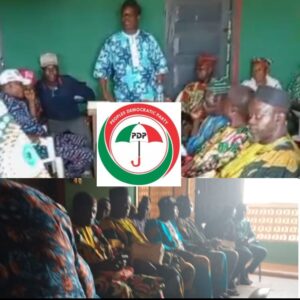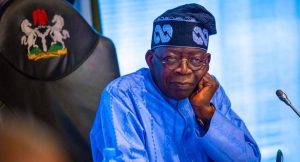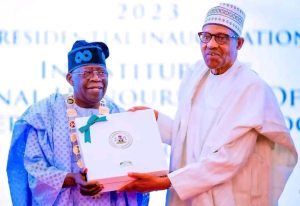In the turbulent years following Nigeria’s civil war—when hope was scarce, and the sound of gunfire had not yet faded from the national psyche—a name emerged from the shadows. It was whispered in markets, shouted in newsrooms, and feared in police barracks: Dr. Ishola Oyenusi.
He was no doctor of medicine or learning. His only credentials were fear and firepower. His stethoscope was a loaded revolver, his prescription—death.
No one knew much about his childhood, but the fragments that survived told of a boy born into poverty, beaten down by a system that offered little to the poor but hardship. His dreams of becoming something more—perhaps a scholar, perhaps just a man of means—shattered when his family could no longer afford his school fees. In a country freshly bleeding from civil war, where the streets teemed with jobless youth and war weapons flowed freely, young Oyenusi took the path that didn’t require qualifications—just guts and a gun.
His criminal journey began, as many tragic stories do, with love—or something like it. He stole a car to impress a girlfriend, killing the owner in cold blood. The stolen vehicle was sold for a paltry ₦400, the blood money handed over as a twisted token of affection. That one act was enough to make headlines—and give him his first nickname: “The Romantic Armed Robber.”
But there was nothing romantic about Oyenusi. Beneath the charm and sharp suits was a man driven by ego and unrestrained rage. Those who crossed him didn’t live to do so twice. He was reckless, flamboyant, and as dangerous as the bullets he carried. And he was just getting started.
By the early 1970s, Nigeria was unraveling. The civil war had left behind a volatile mix of armed ex-soldiers, broken institutions, and a black market flush with stolen goods and smuggled guns. Armed robbery, once unthinkable on such a scale, exploded across the nation. And at the center of it all was Oyenusi.
He wasn’t a lone wolf. He built an empire of terror: a gang of seven men as cold and calculating as he was. They called themselves the Dangerous Seven—and they lived up to the name. Banks, highways, and government convoys became their playgrounds. Lagos trembled at the mention of them. Unlike common thieves who crept in the dark, Oyenusi struck in broad daylight, dressed to kill—literally. He wore sunglasses, three-piece suits, and an arrogance that bordered on madness.
To some, he was a rebel. A twisted kind of Robin Hood. His associate, Joel Amamieye, famously declared before his execution:
“I have no regrets for stealing from the rich and giving to the poor. I am proud of what I did.”
But to most Nigerians, Oyenusi was a symbol of everything broken in their society. A walking nightmare. A man whose rise revealed just how far the rule of law had fallen.

His reign came to an end on March 27, 1971. During a failed robbery attempt, a police officer was shot and killed. That murder broke the dam. Security forces, already under pressure from a terrified public and a jittery military government, swooped in. Oyenusi and several of his men were arrested. The trial was fast, brutal, and symbolic.
The government wanted blood—and they got it.
In those days, justice wasn’t served behind closed doors. It was a public event, a gruesome theatre meant to send a message. The stage? Bar Beach, Lagos—a place where justice was loud, crowded, and televised. On execution day, over 30,000 Nigerians gathered under the scorching sun. Some came out of duty, others out of curiosity. Many came to rejoice.
Oyenusi arrived in chains, his once-boastful demeanor cracking. He tried to maintain his cool, managing a defiant smile, but sweat betrayed his fear. Alongside his gang members, he was tied to a stake. No last words. No escape. At 10:00 a.m., the command rang out. A volley of gunfire tore through the beach air. Just like that, the man who once brought Nigeria’s commercial capital to its knees was reduced to silence and sand.
But death didn’t erase Oyenusi’s legacy. It deepened it.
In 1977, filmmaker Eddie Ugbomah attempted to tell the tale in a movie titled “The Rise and Fall of Dr. Oyenusi.” But the wounds were still fresh, and fear ran deep. No actor dared play the role—terrified that Oyenusi’s old allies might seek revenge. Ugbomah took on the role himself. The film, however, did more than dramatize a criminal’s life. It peeled back the layers of corruption and complicity, allegedly hinting at links between Oyenusi’s gang and high-ranking military officials.
The consequences were swift. Ugbomah’s store was looted. His life was threatened. The system Oyenusi had once defied had not forgotten.
Today, Oyenusi lives on—not in body, but in the annals of Nigeria’s most infamous criminals. His story resurfaces with every conversation about crime, injustice, and societal failure. He was not just a product of a broken nation. He was a mirror to it—reflecting the chaos, the desperation, and the decay.
Dr. Ishola Oyenusi did not just rob banks. He robbed Nigeria of peace.
His end was spectacular. But his rise is the real tragedy: a cautionary tale of what happens when ambition meets absence—of justice, of opportunity, of hope.
In the end, his life was a warning.
His death, a performance.
His legacy? A question mark carved into Nigeria’s troubled history.








